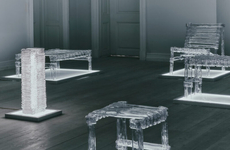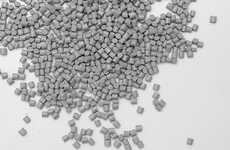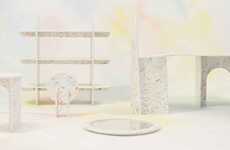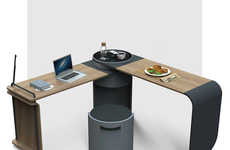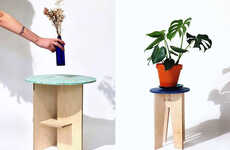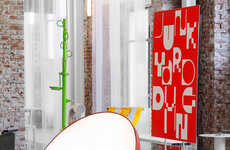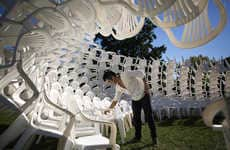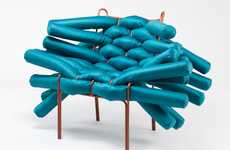
This Company Released New Designs for Its Annual Recycling Project
Mishal Omar — August 1, 2016 — Eco
Bloomberg has launched an unconventional new collection of unusual pieces for its fifth annual recycling project 'Waste Not Want It' -- pieces that were made from recycled waste from the Bloomberg London office.
This year's challenge required designers to make pieces out of "2,000 meters of cable flex, 152 keyboards, 160 holographic screen sheets, 250 printer cartridges and 33 wood pallets." The resulting designs are both beautiful and functional, with most being pieces of furniture. One of the more beautiful designs is the 'Synthesis Bench,' which shows the chemical reaction between the materials used. Another interesting design is the 'Starboard,' a table and benches that use holographic sheets and screens to light up.
Bloomberg expands its creative boundaries with this annual recycling project by combining its technological background with design.
This year's challenge required designers to make pieces out of "2,000 meters of cable flex, 152 keyboards, 160 holographic screen sheets, 250 printer cartridges and 33 wood pallets." The resulting designs are both beautiful and functional, with most being pieces of furniture. One of the more beautiful designs is the 'Synthesis Bench,' which shows the chemical reaction between the materials used. Another interesting design is the 'Starboard,' a table and benches that use holographic sheets and screens to light up.
Bloomberg expands its creative boundaries with this annual recycling project by combining its technological background with design.
Trend Themes
1. Sustainable Design - Expanding the use of recycled waste materials in design projects presents disruptive innovation opportunities for sustainable design solutions.
2. Circular Economy - Creating new products from recycled waste materials demonstrates the potential for disruptive innovation in the realization of circular economy principles.
3. Upcycling Design - Incorporating upcycling practices into design projects offers disruptive innovation opportunities for transforming waste materials into unique and functional creations.
Industry Implications
1. Furniture Manufacturing - Exploring the use of recycled waste materials in furniture design and production can lead to disruptive innovation in the furniture manufacturing industry.
2. Technology Recycling - Leveraging recycled waste materials from technology products for creative design purposes opens up disruptive innovation opportunities within the technology recycling industry.
3. Interior Design - Integrating recycled waste materials into interior design projects offers disruptive innovation possibilities within the interior design industry.
6.1
Score
Popularity
Activity
Freshness



